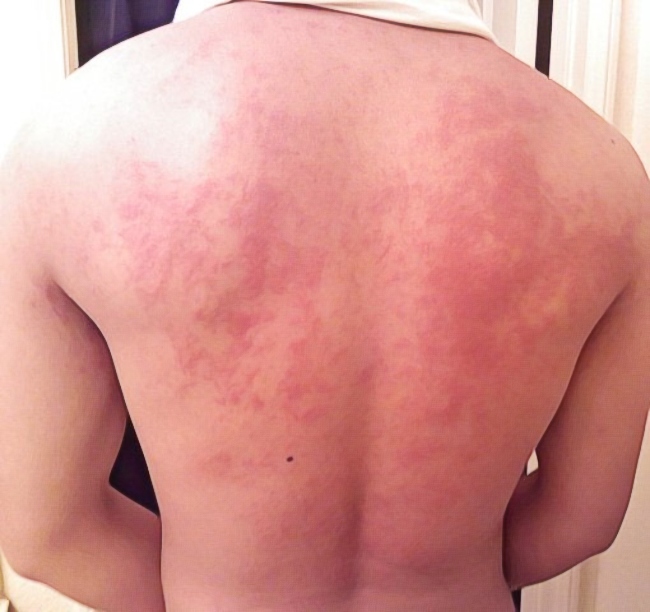The term ‘alcohol allergy’ in itself is rather self-explanatory, but it still warrants explaining. For starters, it should be noted that what a lot of people classify as an alcohol allergy is really alcohol intolerance. Actual alcohol allergy is quite rare, with reactions that could be rather severe.
On the other hand, many people have allergies to certain components found in alcoholic drinks. These allergens include, but are not limited to:
- Barley
- Grapes
- Hops
- Rye
- Wheat
- Yeast
‘Alcohol intolerance’ and ‘alcohol allergy’ are terms that are interchanged often. It should be noted that those whose alcohol allergy is genuine must not drink any alcohol at all.
What are common alcohol allergy symptoms?
When you have what is generally referred to as a true alcohol allergy, even the smallest amounts of alcohol can lead symptoms to manifest. For certain cases, anaphylaxis is a possibility. It is an allergic reaction that is downright life-threatening.
Allergic reaction symptoms can include:
- Diarrhea, vomiting, abdominal pain, or nausea
- Difficulty breathing, nasal congestion, or wheezing
- Eczema, itchiness, or hives on your skin
- Itchy nose, mouth, or eyes
- Loss of consciousness, dizziness, or light-headedness
- Swelling of throat, face, or other parts of the body
The symptoms of an allergic reaction should never be downplayed or, worse, flat-out ignored. When an allergic reaction to alcohol is left untreated, the allergic reaction or reactions can worsen quickly. The last thing anyone would want is for such things to escalate.
It should be noted that there are rare cases wherein allergic reactions can be so severe, their end result will turn out fatal. No matter what stage of life a person is in, they can still end up having an alcohol allergy to develop. It is also possible to develop an intolerance later on; symptoms can suddenly come out of nowhere. There are rare cases wherein drinking alcohol can cause pain, which could possibly be a sign of Hodgkin’s lymphoma.
It is definitely crucial to seek advice from a healthcare professional if there are any symptoms that arise after drinking alcohol.
Alcohol allergy is generally caused when there’s an “allergen” or trigger that comes into contact with a person’s immune system in a way that leaves it no choice but to overreact. The immune system of people with an alcohol allergy will treat alcohol as a threat. In response, it will produce IgE antibodies (immunoglobulin E). These trigger an allergic reaction in the body. As previously mentioned, alcohol intolerance is actually far more common than a true alcohol allergy.

What does having alcohol intolerance mean?
In a nutshell, having alcohol intolerance means that consuming alcohol has triggered a genetic metabolic disorder. The key element is a substance known as acetaldehyde, which is a product of alcohol metabolism. It is toxic and produced by the body as the alcohol in the system is broken down.
It all starts in the liver of a person, since the body uses enzymes in order for alcohol to be neutralized. Alcohol is converted into acetaldehyde first, then the aldehyde dehydrogenase 2 (ALDH2) enzyme will neutralize it. After that occurs, it will then be removed from the body.
When alcohol intolerance occurs in a person, it means their enzymes do not work quickly or just do not work at all. No matter which one of those cases is at play, acetaldehyde will end up accumulating in the body of a person. When there’s an overabundance of acetaldehyde in the bloodstream, there are side effects. Those will end up becoming the manifestations of alcohol intolerance symptoms. Examples of this include the likes of hives, nausea, and flushing.
It’s the deoxyribonucleic acid (DNA) of a person which leads to the working speed of their enzymes being determined. That’s what then leads, in turn, to alcohol intolerance issues:
- The enzymes that neutralize acetaldehyde go at a slower pace, leading the substance to be broken down at a much slower rate. The speed at which it will be expelled entirely from the body will also slow down considerably.
- Enzymes are unable to be synched; when there’s a misalignment with acetaldehyde-neutralizing enzymes and the ones that turn alcohol into acetaldehyde in the first place, acetaldehyde will build up.
There is a specific combination of ADH1B and ALDH2 gene variants that are associated with alcohol intolerance. This directly influences the alcohol-neutralizing enzymes. People of East Asian descent most commonly have these gene variants; alcohol intolerance is generally a typical problem.
The symptoms of alcohol intolerance are numerous. It is way more than just ending up flushed or feeling quite sick. Those two specific symptoms can actually manifest after just a drink or three. It’s pretty common to develop alcohol intolerance suddenly. However, the way it manifests in others can vary somewhat.
Some symptoms of alcohol intolerance include, but are not limited to:
- Asthma symptoms worsening
- Feeling extreme exhaustion
- Headaches
- Hives or itchy skin
- Low blood pressure
- Quick heartbeat
- Rashes, flushed skin, or redness
- Stuffy or runny nose
- Vomiting and nausea
When it comes to intolerance to alcohol that is rather mild, it’s best to either avoid particular alcohol types with possibly reactive ingredients, avoid drinking any alcoholic drinks altogether, or limit just how much alcohol you take in. If there is a serious reaction that follows alcohol consumption, it would be best to seek advice from a medical professional.
The majority of people who suffer from alcohol intolerance end up having minor breathing difficulties, paired with a quickened heart rate. The symptoms generally start because of labored breathing after alcohol is consumed. Roughly 20 minutes to half an hour after the consumption of alcohol, sufferers end up feeling a sensation around their ears, cheeks, eyes, and forehead that’s tingling or hot. Afterward, the skin will become flushed and red; however long this lasts is dependent on alcohol tolerance and how much alcohol is consumed.
Cases can be severe to the point of headaches up to two hours after the consumption of alcohol, lasting more than several hours. While not as severe as an alcohol allergy, they are uncomfortable and unpleasant to experience.
What is alcohol tolerance?
Alcohol tolerance, put simply, is when the level of buzz is no longer the same from drinking the same amount of alcohol. Alcohol tolerance’s effects are not as readily felt. However, it will still end up causing liver damage, and worst of all, there’s a possibility of the person becoming an alcoholic.
It becomes necessary for someone with an alcohol tolerance to take in more drinks so they can feel the effects. Some individuals with higher tolerance could end up fostering higher drinking levels; this could lead to a necessity for checking into a rehab center to deal with the issue. Those, in turn, will trigger negative effects on a person’s health.
Conclusion
Alcohol allergy, often misconstrued as being the same as alcohol intolerance, is actually quite rare with severe reactions. Alcohol allergy can cause anaphylaxis in some cases, which could be life-threatening. Alcohol intolerance, on the other hand, is essentially a genetic metabolic disorder. Those are two different things. Alcohol tolerance needs to be also observed, partially because it could lead to dependency and turn a person into an alcoholic.
Source:
https://rarediseases.info.nih.gov/diseases/12634/acute-alcohol-sensitivity
















